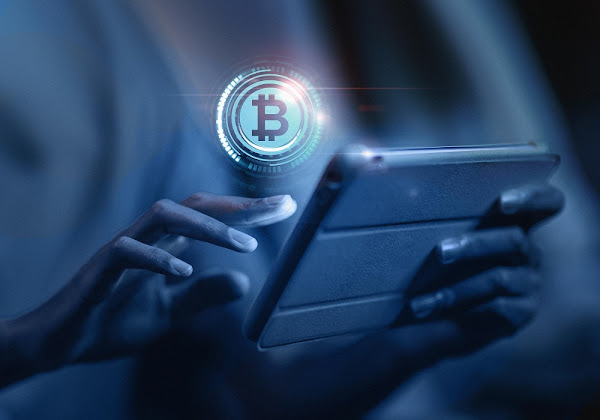Guide to Blockchain Oracle
Blockchain Oracles are third-party services that give information on external real-world and digital events to blockchain networks. Data from oracles power smart Contracts and DAOs.
Definition of Blockchain Oracle
A blockchain oracle is a dependable third-party service that offers smart contracts authenticated access to external data sources from the outside world via an API.
Blockchain Oracles link the actions of smart contracts to external events. Smart contracts frequently require an outdoor event to be the trigger.
Blockchain Oracles can be built to give smart contracts access to various data.
A real-world blockchain oracle might offer information about the weather, events, court cases, markets, financial statistics, economic data, interest rates, car or machine performance, etc.
The most crucial thing to remember about blockchain oracles is that most smart contracts are designed to be carried out when a real-world condition is satisfied.
Blockchain Oracles are reliable sources that can offer verified information regarding actual happenings.
Software Blockchain oracles give Blockchain Development digital information. They provide links to information available on other websites, servers, databases, etc.
Examples of information provided by software oracles include stock prices, exchange rates, cryptocurrency pricing, and NF.
Hardware Oracles Hardware oracles assist in tying blockchain development platforms to real-world occurrences. This data is collected from the actual world using sensors and reading devices and sent to blockchain development platforms.
Thermometers, RFID readers, barcode scanners, electronic sensors, and IoT devices can all submit data to blockchain development systems via hardware oracles.
The Blockchain Development Oracle Issue
A centralized oracle's data introduces security risks; for instance, if the provider of the centralized oracle is compromised, it may feed false data into the blockchain development.
The wrong data could potentially threaten Blockchain Development integrity.
Using decentralized Oracles to solve the blockchain development problem. Decentralized oracles aid the blockchain development oracle problem.
When creating a smart contract, you may feed it data from a decentralized oracle or allow it to access data from many blockchain development oracles, only causing an event to occur when the majority or all of the oracles supply the same information.
Concerns regarding blockchain oracles being compromised have been raised.
To ensure that many sources or blockchain oracles validate the same result in the case of higher bets, smart contracts might add more blockchain oracles.
For instance, if a basketball game's result triggers a smart contract wager between two users, we could create a smart contract that demands participation from five blockchain oracles, such as ESPN, NBC Sports, CNN Sports, BBC Sports, and Yahoo Sports.
Before the smart contract can be carried out, all five blockchain oracles may need to notify the precise result.
Additional Blockchain Oracles
A blockchain development platform or smart contract receives data from the outside world or another digital platform via input or inbound oracles. As of the time of writing, input blockchain oracles are the majority.
In contrast, Output Oracles communicate data from a blockchain Development or smart contract to a third party.
For instance, when a smart contract is signed, an output oracle may cause an actual event, such as granting access to a website or hotel room after receiving payment.
The interoperability of blockchain development systems is the topic of Cross-Chain Oracles.
Thanks to these blockchain oracles, users can create services and applications usable on many blockchain development platforms.
Only Chainlink presently offers compute-enabled oracles. Some calculations are impractical to perform on-chain due to technical, budgetary, or legal limitations.
Decentralized services are offered via compute-enabled oracles employing safe off-chain calculation procedures.
Compute-enabled blockchain oracles can do complex calculations off-chain and then transfer the result to a blockchain development platform instead of just displaying the results of a query.
Contract-specific blockchain oracles are appropriate in some circumstances. As their name implies, they are blockchain oracles tuned to function with a single smart contract.
They are made from the ground up to fulfill a particular use case.
Human Oracles are experts who can operate as oracles; their reputation is the primary motivator for providing smart contracts with accurate information.
Blockchain Oracle Adopts
Oracles can be put to service in a wide variety of situations. The use cases with the highest adoption rates as of this writing are listed below:
- To obtain financial information about different assets, markets, and customer creditworthiness, DeFi uses blockchain oracles.
- Through input and output blockchain oracles, businesses and DAOs can link their off-chain processes to their on-chain logic.
- They could be able to use their digital and physical resources in this way to automate their reasoning and carry out intricate procedures.
Blockchain Oracles are used by dynamic NFTs to update their metadata or features in response to actual occurrences and to give them random characteristics.
In on-chain games, verifiable randomness is generated using blockchain oracles to produce randomized events and unpredictable and entertaining gameplay.
Using input oracles, insurance apps, and smart contracts confirms the occurrence of insurable events. Legal information, sensor data, satellite photography, and API requests from websites are a few examples of this.
Hardware and software oracles are used to gather environmental data for sustainability projects.
Satellite pictures, sensor readings, temperature and humidity data, and meteorological information are all included.
These protocols can reward users that engage in conscious consumption or other behaviors specified by the platforms thanks to the computation of this data.
Blockchain Oracles are also being used to improve the performance of some carbon credit-based protocols.
Conclusion
According to EnclaveFX Techno, Blockchain Oracles are a vital tool for integrating the physical and digital worlds. Additionally, they are assisting in enhancing blockchain development networks' capabilities. Blockchain Oracles and smart contracts work together to automate some processes, safeguard commercial agreements, and make arbitration easier. Combining input and output oracles makes it possible to build systems that can run and utilize physical and digital resources effectively and independently.




Comments
Post a Comment